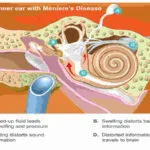Have you ever found yourself lost in the maze of medical coding, especially regarding renal transplants? You’re not alone. The ICD 10 code for renal transplants can be bewildering, but it’s about getting a little clearer for those dealing with kidney transplant procedures.
Imagine a world where coding for renal transplants is precise, efficient, and universally understood. That world is now a reality with the introduction of a new, effective ICD 10 code for renal transplant. This game-changing update promises to revolutionize how healthcare professionals document and bill these life-saving procedures. But what does this mean for you, your patients, and the healthcare system?
In this blog post, we’ll dive deep into the intricacies of this new code, exploring its benefits, implementation strategies, and future implications.
Whether you’re a seasoned coder, healthcare administrator, or a curious medical professional, you’ll find valuable insights to navigate this important update. Let’s unravel the complexities of the real ICD 10 code for renal transplant and discover how it’s set to transform the landscape of transplant medicine.
Key Takeaways
The implementation of the new effective ICD 10 code for renal transplant marks a significant milestone in medical coding and billing. Here are the key points to remember:
- The updated code provides greater specificity and accuracy in documenting renal transplant procedures
- It streamlines the billing process, reduces errors, and improves reimbursement rates
- Healthcare providers must update their systems and train staff to use the new code correctly
- The new code aligns with international standards, facilitating better data sharing and research
Understanding ICD 10 Code for Renal Transplants
1. Definition and Purpose of ICD 10 Code for Renal Transplant
Icd 10 code for renal transplants, or International Classification of Diseases, 10th Revision, are standardized alphanumeric codes used to classify and identify diseases, injuries, and health conditions. These codes serve multiple purposes in the healthcare industry, including:
- Facilitating accurate diagnosis and treatment
- Enabling efficient billing and reimbursement processes
- Support epidemiological research and public health monitoring
2. Specific Codes Related to Renal Transplants
Renal transplant procedures and related diagnoses have specific ICD 10 codes for renal transplants assigned to them. Here’s a table showcasing some common codes:
| ICD 10 code for renal transplant | Description |
| Z94.0 | Kidney transplant status |
| T86.10 | Unspecified complication of kidney transplant |
| Y83.0 | Surgical operation with a transplant of the whole organ as the cause of the abnormal reaction |
| N18.6 | End-stage renal disease |
3. Importance of Accurate Coding for Healthcare Providers
Accurate coding of renal transplant procedures and related diagnoses is crucial for healthcare providers for several reasons:
- Proper Reimbursement: Ensures healthcare facilities receive appropriate compensation for services rendered
- Quality of Care: Facilitates better patient care through accurate medical history tracking
- Research and Analysis: Supports clinical research and helps identify trends in transplant outcomes
- Compliance: Meets regulatory requirements and avoids potential legal issues
By understanding and implementing the correct ICD 10 code for renal transplants, healthcare providers can improve their overall efficiency and effectiveness in patient care management.

New Effective ICD 10 Code for Renal Transplant Renal Transplant
Details of the Updated Code
The new effective ICD 10 code for renal transplant is Z94.0. This code specifically denotes “Kidney transplant status” and is used to indicate that a patient has undergone a kidney transplant. It’s important to note that this code is used for the ongoing status of having a transplanted kidney, not for the actual transplant procedure itself.
Changes from the Previous Coding System
The transition from ICD-9 to ICD-10 brought significant changes in coding specificity:
| Aspect | ICD-9 | ICD-10 |
| Code | V42.0 | Z94.0 |
| Description | Organ or tissue replaced by transplant, kidney | Kidney transplant status |
| Specificity | Less specific | More specific |
| Related codes | Limited | Expanded |
The new system provides more detailed options for related conditions and complications, allowing for more accurate documentation and billing.
Implementation Timeline
The implementation of the new ICD 10 code for renal transplant follows this general timeline:
- October 1, 2015: Official implementation of ICD-10 in the United States
- 2015-2016: Transition period for healthcare providers
- 2017 Onwards: Full adoption and ongoing updates
Impact on Medical Billing and Reimbursement
The introduction of the new ICD 10 code for renal transplant has had several impacts on medical billing and reimbursement:
- Improved accuracy in documenting patient status
- More precise coding leads to appropriate reimbursement
- Enhanced ability to track transplant outcomes and complications
- Facilitation of better data analysis for quality improvement initiatives
These changes have led to more streamlined processes for healthcare providers and insurance companies, ultimately benefiting from patient care and resource allocation in transplant medicine.
Benefits of the Updated Renal Transplant Code
The introduction of the new effective ICD 10 code for renal transplant brings several significant advantages to the healthcare industry. Let’s explore these benefits in detail.
1. Improved Accuracy in Diagnosis and Treatment
The updated renal transplant code enhances the precision of diagnosis and treatment planning. This improvement stems from:
- More specific coding options
- Reduced ambiguity in patient records
- Better alignment with current medical practices
These factors contribute to a more accurate representation of the patient’s condition, leading to tailored treatment plans and improved patient outcomes.
2. Enhanced data Collection for Research
The new code significantly boosts data collection efforts for research purposes:
- Increased granularity in patient information
- Easier identification of trends and patterns
- More robust statistical analysis
| Aspect | Old Code | New Code |
| Specificity | Limited | Highly detailed |
| Research value | Moderate | Substantial |
| Data Accuracy | Good | Excellent |
Streamlined Communication Between Healthcare Professionals
The updated code facilitates better communication among healthcare providers:
- Standardized terminology across different healthcare settings
- Clearer documentation of patient history and procedures
- Improved coordination between specialists involved in renal transplant care
By providing a common language for discussing renal transplants, the new code reduces misunderstandings and enhances collaborative care efforts.
With these significant benefits in mind, healthcare providers must understand how to effectively implement this new code in their clinical practice. Let’s explore the practical steps for integrating the updated renal transplant code into daily operations.
Implementing a New Code in Clinical Practice
Now that we understand the new effective ICD 10 code for renal transplant, it’s crucial to focus on its implementation in clinical practice. This process involves several key steps to ensure a smooth transition and accurate coding.
Training Requirements for Medical Staff
Proper training is essential for medical staff to effectively use the new renal transplant code. Here’s a breakdown of the training requirements:
- Comprehensive coding workshops
- Online learning modules
- Hands-on practice sessions
- Regular updates and refresher courses
Updating Electronic Health Record Systems
To accommodate the new code, healthcare facilities must update their electronic health records (EHR) systems. This process typically involves:
| Step | Description |
| 1. System audit | Identify all areas where the old code is used |
| 2. Software updates | Install necessary patches or upgrades |
| 3. Data migration | Transfer existing patient data to the new coding system |
| 4. Testing | Conduct thorough testing to ensure accuracy and functionality |

Overcoming Potential Challenges in Adoption
As with any changes in medical coding, there may be challenges in adopting the new renal transplant code. Some potential issues and solutions include:
- Resistance to Change: Provide clear communication on the benefits of the new code
- Coding Error: Implement a double-check system during the transition period
- System Glitches: Have IT support readily available to address technical issues
- Documentation Gaps: Develop standardized templates to ensure all necessary information is captured
By addressing these challenges proactively, healthcare facilities can ensure a smoother implementation of the new effective ICD 10 code for renal transplant. This careful approach will lead to more accurate coding, improved patient care, and better data management.
Future Implications of the Effective Renal Transplant Code
The implementation of the new, effective ICD 10 code for renal transplant is set to revolutionize the field of nephrology and transplant medicine. This change brings about several exciting possibilities for the future of patient care and medical research.
1. Potential for More Personalized Patient Care
The updated renal transplant code allows for more granular data collection, enabling healthcare providers to:
- Tailor treatment plans based on specific transplant characteristics
- Identify trends in patient outcomes related to various transplant factors
- Develop targeted interventions for different subgroups of transplant recipients
| Personalized Care Aspect | Benefits |
| Treatment Plans | Customized for individual patient needs |
| Outcome Prediction | More accurate based on specific transplant details |
| Medication Regimens | Tailored to transplant type and patient characteristics |
2. Advancements in Transplant Outcome Tracking
With the new code, tracking and analyzing transplant outcomes becomes more sophisticated:
- Enhanced ability to correlate specific transplant procedures with long-term outcomes
- Improved identification of risk factors for transplant rejection or complications
- More accurate assessment of the efficacy of different immunosuppression protocols
These advancements will contribute to evidence-based improvements in transplant medicine, potentially leading to higher success rates and better quality of life for recipients.
3. Possibilities of International Standardization
The effective renal transplant code opens the doors for global collaboration in transplant medicine:
- Facilitates easier comparison of transplant data across different countries
- Promotes the development of international best practices in renal transplantation
- Supports global research initiatives by providing a common language for data sharing
As we move forward, these implications will likely lead to significant progress in renal transplant procedures and outcomes, benefiting patients worldwide. The medical community can now focus on leveraging this standardized coding system to drive innovation and improve patient care.

Conclusion
The implementation of the new effective ICD 10 code for renal transplant marks a significant advancement in medical coding and billing practices. This update streamlines the documentation process, enhances specificity in patient records, and improves communication among healthcare providers. By adopting this code, healthcare facilities can ensure more accurate reimbursement and better track patient outcomes related to renal transplantation.
As the medical field continues to evolve, staying informed about coding updates is crucial for healthcare professionals. Embracing the new renal transplant code not only improves current practices but also paves the way for future advancements in transplant medicine. Healthcare providers are encouraged to integrate this code into their clinical workflows promptly to maximize its benefits and contribute to the ongoing improvement of patient care in the field of renal transplantation.
FAQ:
When will the new code take effect?
The effective date is October 1st of the current year.
Do I need to update the old records?
No, only use the new code for procedures performed after the effective date.
Will this affect insurance claims?
Yes, using the new code may improve claim accuracy and processing.
Will this affect insurance claims?
While not mandatory, it’s recommended to familiarize staff with the new code






